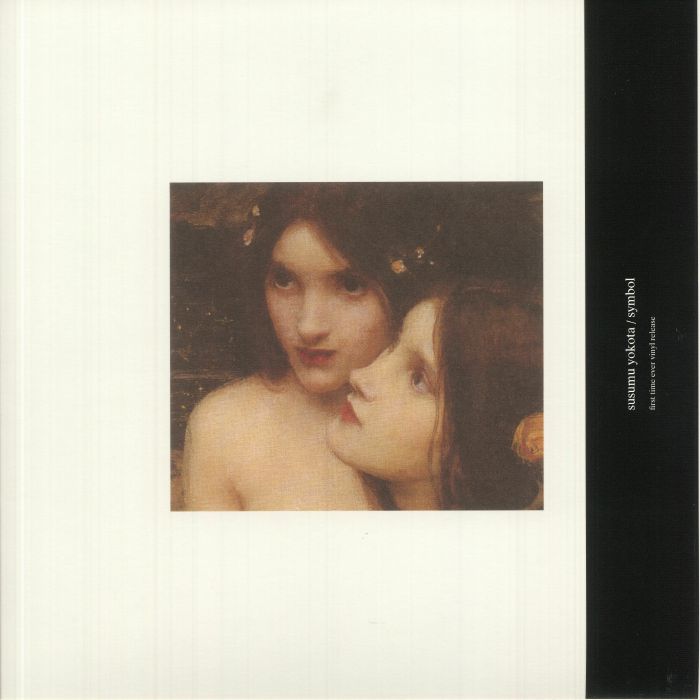Dusted Down: Susumu Yokota – Symbol (Lo)
The late Japanese producer’s crowning ,moment gets a re-issue courtesy of Lo

Perhaps no artist on Earth has ever united the polarised worlds of baroque and electronic music more effectively than Susumu Yokota. Despite having his life tragically cut short in 2015, at the age of 54 after a long spate of illness, the Japanese former economist turned electronic musician hardly let the oncoming tide of death discourage him from becoming an ambient, intelligent, yet ‘classicized’ house and techno stalwart. Over the course of nearly 3 decades, he produced over 25 albums, blowing most of his enviro-ambient contemporaries out of the park with his strangely prolific work ethic and charmingly pensive image.
The key to Yokota’s machinelike output, especially throughout the late 90s to the early noughties, was the pastoral. Having grown up and lived in Japan all his life, and at that point having resided in the suburbs of Tokyo for a good while, his real-world muses hardly consisted of bait Western points of reference like Walden, Bysshe-Shelley, or the now eminent Cottagecore movement. Instead, he would look to idyllic folk cinema; cult Studio Ghibili anime film Princess Mononoke – known for its towering depictions of godlike forest spirits, natural-magic realism and the importance of protecting the environment – was his favourite. At the same time, in this period, Mr. Yokota would wander the rural mountainside ranges close to his home, taking in the “smell of the grass and the trees,” and reveling in the clarity of mind they brought him.
‘Symbol’ was one of the many albums produced in the aftermath of Yokota’s first-watch love affair with Princess Mononoke. Its soundtrack, composed by the prolific Joe Hisaishi, is unmatched, nailing a sense of swelling emotional rupture via string motifs during climactic story arcs, not to mention driving drums for demonic action sequences (as when the hideous, guttural demon attacks the Muromachi village).
While wholly original in its composition, it’s not hard to spot Hisaishi’s points of inspiration from pieces by classical composers – the very same pieces Yokota samples on ‘Symbol’. Yokota’s is a specifically splendid, 45-minute piece of plunderphonics. From the off, we hear his routine exercise in original drumwork laid to sampled movements; opener ‘Long Long Silk Bridge’ samples snippets of the Russian Philharmonic’s 2004 version of Tchaikovsky’s Ballet Suites, while Vivaldi’s ‘Summer’ from the 4 Seasons makes a nifty appearance on the intense musical ultimatum ‘I Close The Door Upon Myself’.
Even a bit of the ole’ Ludwig Van gets a pillaging on our favourite cross-rhythmic build to elysium, ‘Flaming Love And Destiny’. And while nothing of Hisiashi’s original Mononoke score makes an appearance, it might as well do in spirit. Every string upsurge, harp twinkle, and cello flagration is akin to the perfect unity of environment, scene and score achieved in that film, arguably the most prolific in Ghibili’s filmography bar Spirited Away.
At the same time, Yokota builds to something much more than just samply filmic ambient electronic music. The album is rooted in rural environments, and this shines best on Yokota’s sampling of ambient-adjacent pioneers like Meredith Monk, John Cage, and Steve Reich. ‘The Dying Black Swan’ drenches intense reverb and surrounds over Monk’s ‘Change’, making the original sample sound less like a warmup exercise in a vocal booth (sorry Meredith), and more like the song of a river nymph or mermaid, singing away on the edges of an enchanted forest. Reich’s ‘Six Marimbas’, meanwhile, is sampled to transcendent, repetitious effect, turning the minimal to robotic on ‘Blue Sky and Yellow Sunflower’. The marimbas are smushed happily but crudely together with Debussy’s ‘Clair De Lune’ and Yokota’s own, strange vocal shouts, making this by and large the least ‘techno’ tune on the whole album. It’s better suited to flicking our hair back and crying out in joy at the sheer beauty of the Nagano prefecture, or soaring above its mountain ranges, than getting down to business in the club.
‘Symbol’ is the most ‘on-the-nose’ Yokota album, fusing classical, romantic and baroque samples with electronics in quite an obvious way. But, being the first to do so, that’s exactly what makes it good.
Jude Iago James